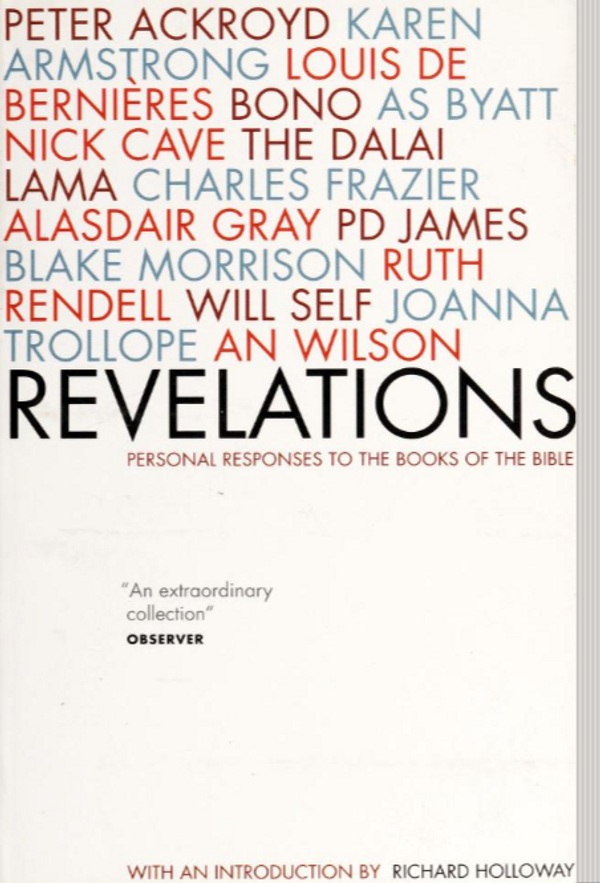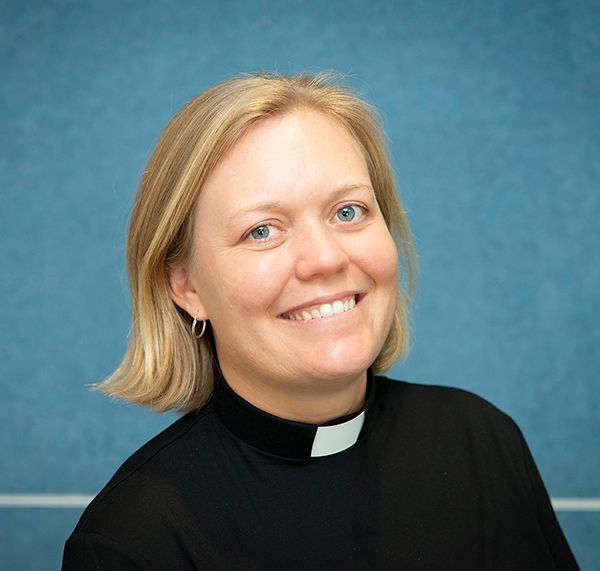Read, Grow, Inspire
By Rev. Dr Katherine Rainger, Senior Chaplain
One of my favourite places is a café bookstore at Bondi Beach called Gertrude and Alice.

I was delighted one day to find a signed copy of a book by one of my favourite Irish authors. My best find, however, is a book called Revelations: Personal Responses to the Books of the Bible.

Revelations focuses on the Bible as a collection of 66 different books written at different times in different places. Each book of the Bible has its own character, audience, and purpose.
At the same time, each book of the Bible contributes to the overall revelation of God in conversation with humanity. This revelation and conversation culminate in the person of Jesus of Nazareth.
In Revelations, historians, journalists, authors and musicians write their personal responses to the biblical books. Bono, the Dalai Lama and Nick Cave are probably the most well-known. I love the insights that each responder brings as they interact with their chosen book of the Bible. Nick Cave’s response to the Gospel of Mark is particularly compelling as he brings his own life story into conversation with the Bible. He writes:
When I bought my first copy of the Bible, the King James version, it was to the Old Testament that I was drawn, within its maniacal, punitive God, that dealt out to His long-suffering humanity punishments that had me drop-jawed in disbelief at the very depth of their vengefulness. I had a burgeoning interest in violent literature coupled with an unnamed sense of divinity in things, and in my early twenties, the Old Testament spoke to that part of me that railed and hissed and spat at the world. I believed in God, but I also believed that God was malign and if the Old Testament was testament to anything, it was testament to that. Evil seemed to live so close to the surface of existence within it, you could smell its mad breath, see the yellow smoke curl from its many pages, hear the blood-curdling moans of despair. It was a wonderful, terrible book and it was sacred scripture.
But you grow up. You do. You mellow out. Buds of compassion push through the cracks in the black and bitter soil. Your rage ceases to need a name. You no longer find comfort watching a whacked-out God tormenting a wretched humanity as you learn to forgive yourself and the world. That God of Old begins to transmute in your heart, base metals become silver and gold, and you warm to the world.

Then one day, I met an Anglican vicar and he suggested that I give the Old Testament a rest and read Mark instead. I hadn’t read the New Testament at that stage because the New Testament was about Jesus Christ and the Christ I remembered from my choirboy days was that wet, all-loving, etiolated individual that the church proselytised. I spent my pre-teen years singing in the Wangaratta Cathedral Choir and even at that age I recall thinking what a wishy-washy affair the whole thing was. The Anglican Church: it was the decaf of worship and Jesus was their Lord.
“Why Mark?”, I asked.
“Because it’s short”, he replied.
Well, at the time I was willing to give anything a go, so I took the vicar’s advice and read it, and The Gospel According to Mark just swept me up.
Here, I am reminded of that picture of Christ, painted by Holman Hunt, where He appears, robed and handsome, a lantern in His hand, knocking on a door: the door to our hearts, presumably. The light is dim and buttery in the engulfing darkness. Christ came to me in this way, lumen Christi, with a dim light, a sad light, but light enough. Out of all the New Testament writings – from the Gospels, through the Acts and the complex, driven Letters of Paul to the chilling, sickening Revelation – it is Mark’s Gospel that has truly held me.
The Old Testament and New Testament are more nuanced in their portrayal of God than Cave allows, however, his sense of engaging with the texts is compelling.
This Book Week, why not follow Nick Cave’s curiosity and give The Gospel of Mark a read? I’m starting a reading group that will read The Gospel of Mark together in a format that suits the group. If you’d like to be a part of this group, send me an email.
Happy reading!
